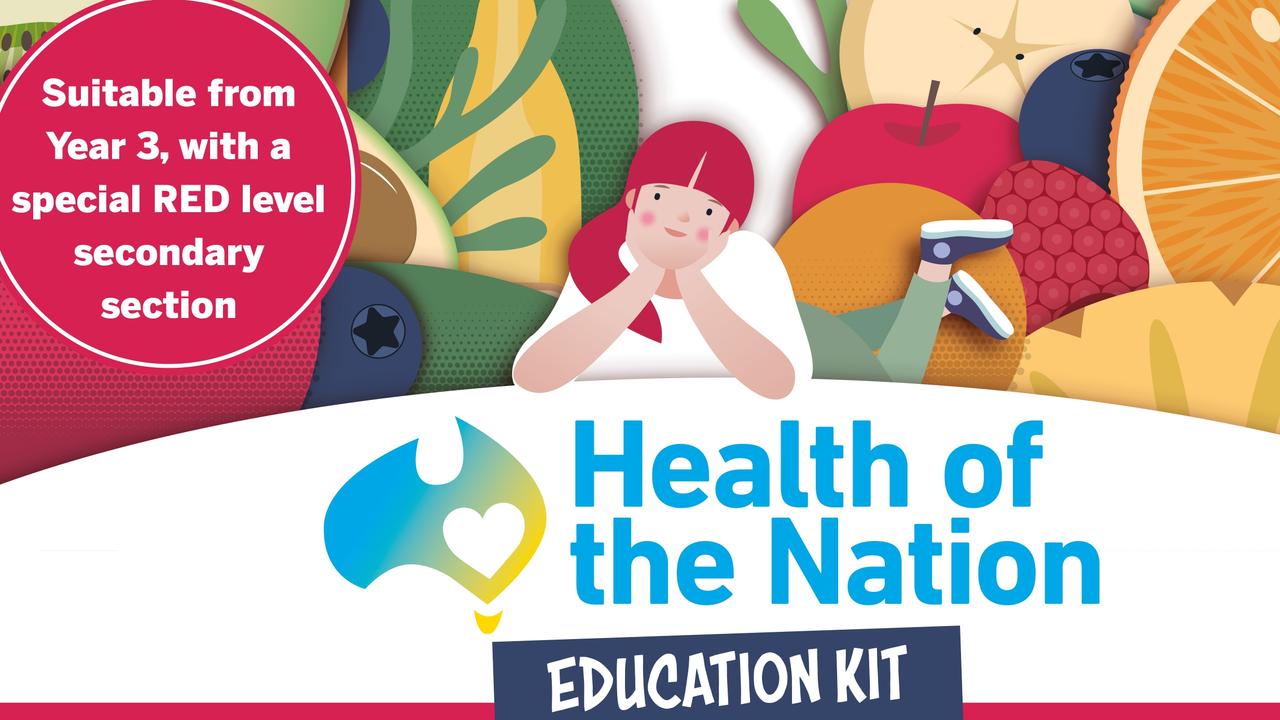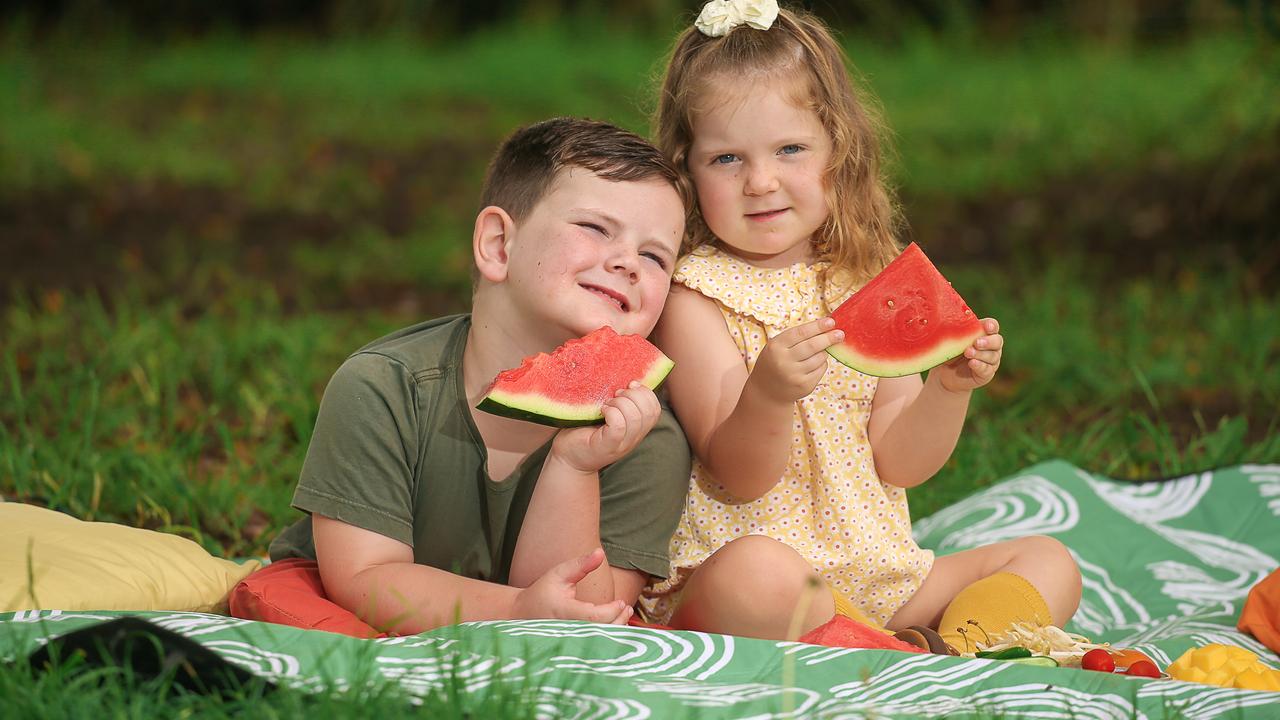Health of the Nation: how children can jump-start their way to a life of good health
Two thirds of Aussies are overweight, we barely exercise, we watch screens for too long, and eat too much junk food. But we can turn it around, if we all make some simple, healthy changes
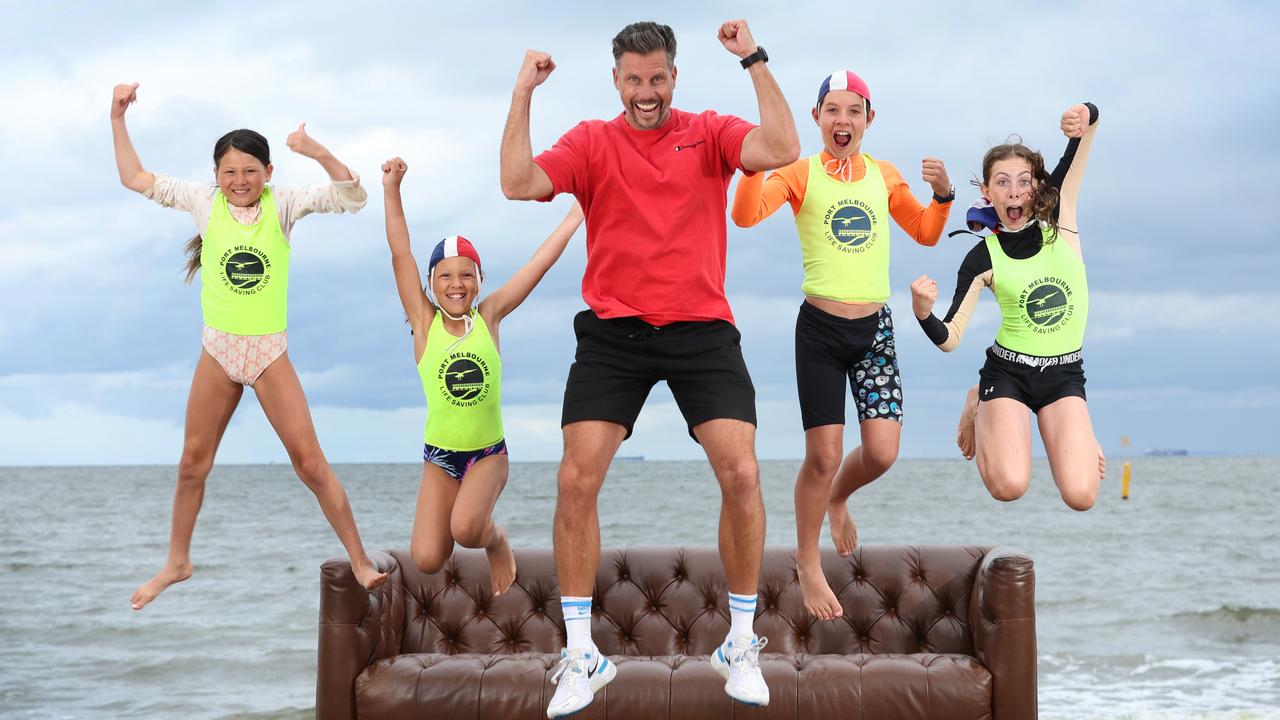
READING LEVEL: GREEN
Australians are in danger of living a shorter life and becoming very sick from preventable* diseases in their old age, but admit they are too lazy to do anything about it, a snapshot* of the nation’s health shows.
The Health of the Nation study of more than 3000 people found two thirds of Australians are overweight or obese*, we barely exercise, we sit in front of screens for more than eight hours a day and many of our calories* come from junk food.
Medical research shows this inactive lifestyle is not only expanding our waistlines, it’s having an effect on how our brains work and is causing older Australians to suffer chronic* illnesses, including cancer, heart disease, diabetes* and dementia*.
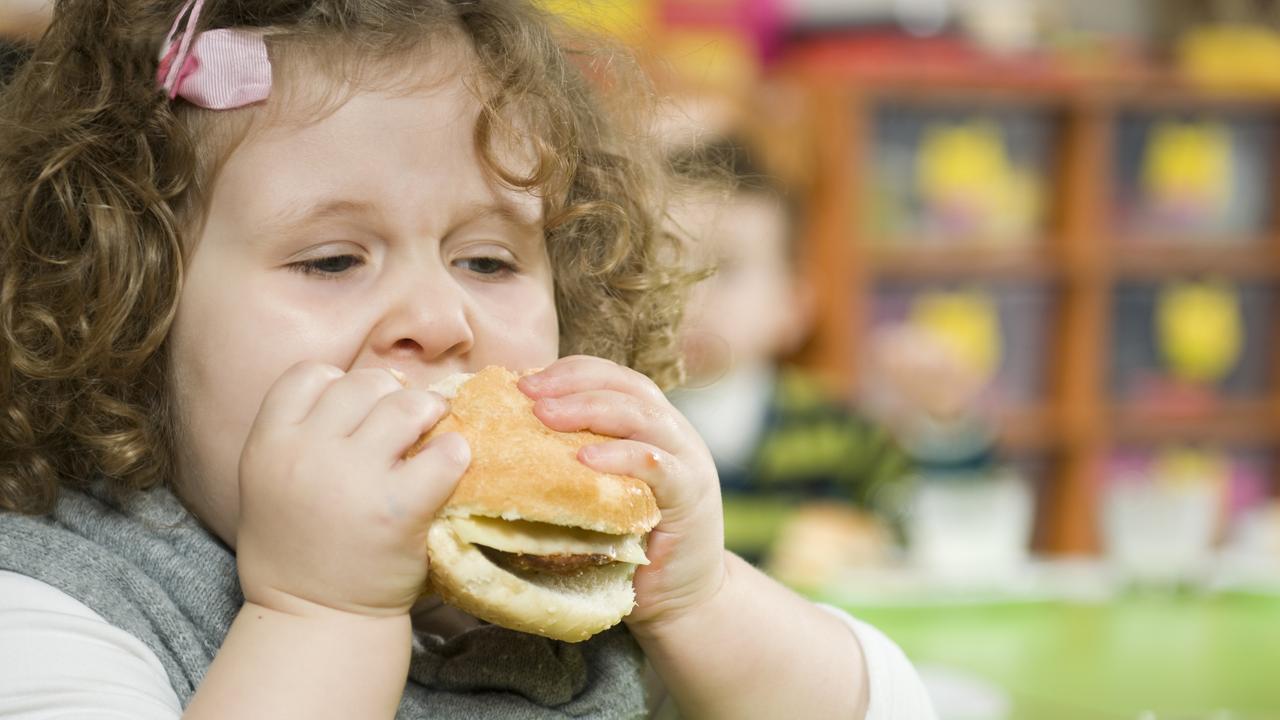
To help solve these issues, Kids News has joined the Health of the Nation campaign, which is using the latest science and advice on healthy eating and exercise to get Australians’ health back on track.
Health of the Nation ambassador* and fitness trainer Sam Wood said kids who are active during their childhood and stay active into adulthood can reverse these health problems.
He said kids should encourage their mums and dads to move more and play with them after learning only 50 per cent of parents play outside with their children for 1-3 hours each week and a quarter of parents have never thrown or kicked a ball with their kids.
“That statistic really worries me,” Wood said. “We know that overweight, unhealthy kids become overweight, unhealthy adults and it’s really important before they are independent that we lead by example and help by getting outside and getting active with them.”
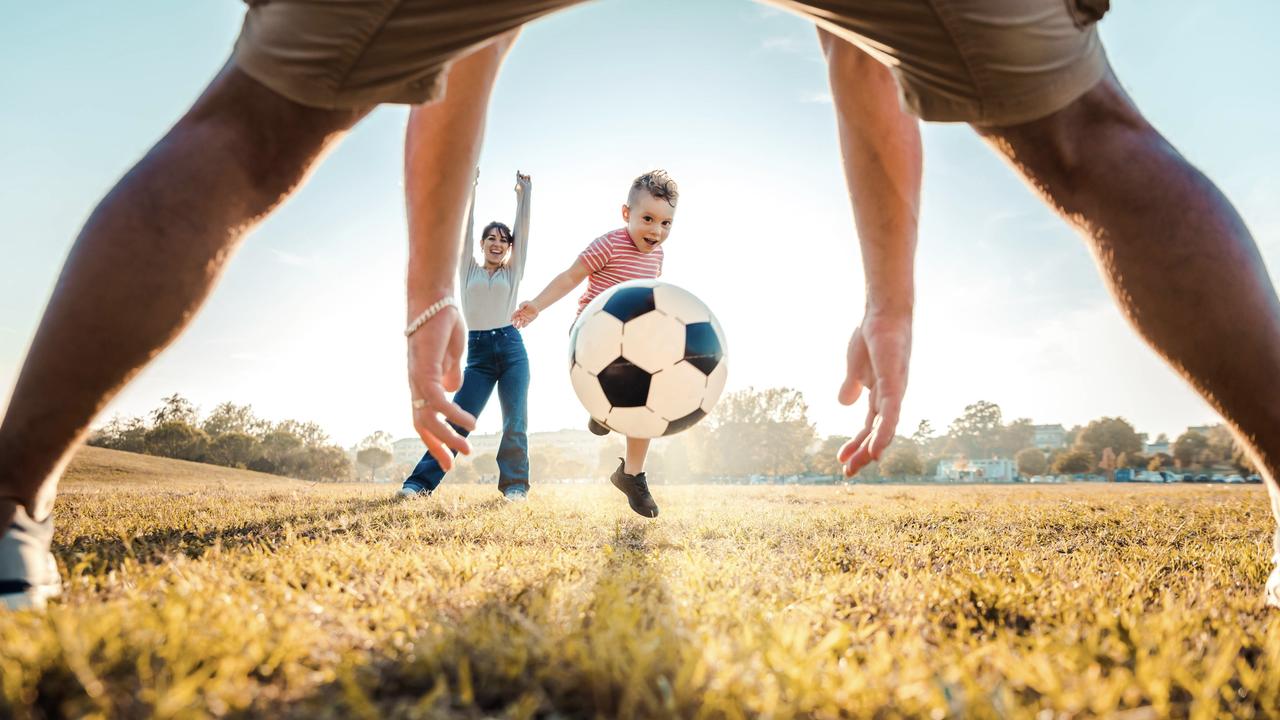
WHAT DOES THE SURVEY SHOW?
The Health of the Nation study found South Australia is the fattest state (38 per cent identify as being obese), followed by Tasmania and then Queensland (33 per cent).
Forty per cent of us are junk food addicts, consuming soft drinks, hot chips, chocolates, biscuits and lollies more than once a week.
We’re couch potatoes, with the survey finding half of us are in the high-risk group who sit for more than eight hours a day and spend just 34 minutes exercising.
And our greatest health fear is dementia.
WE’RE GETTING HEAVIER
Lifestyle change expert and former Australian Medical Association president (NSW) Dr Kean-Seng Lim said Australians were risking living a shorter life if they ignored health signs.
“When I started working in my practice about almost 30 years ago, most scales in our practice went up to 130kg; within a few years we needed to get 160kg scales, now every room has 200kg scales and some have 250kg scales,” Dr Lim said.
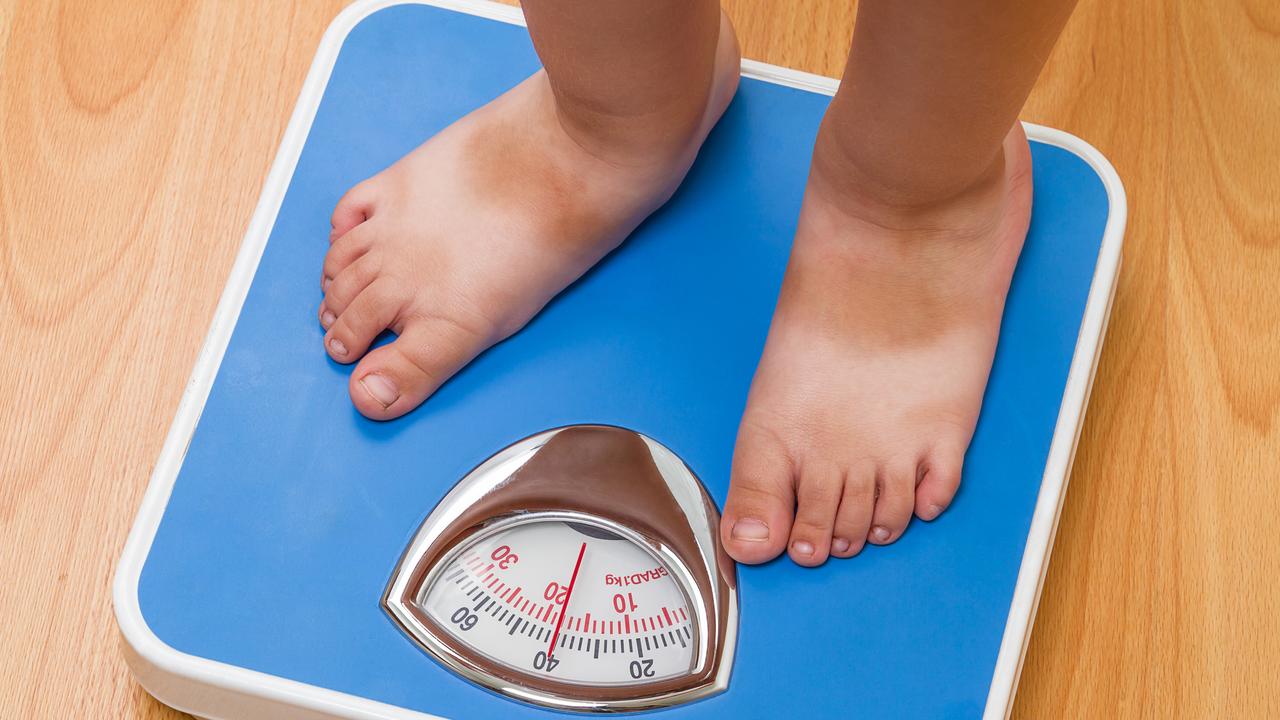
Australians blame lack of time (44 per cent), motivation (59 per cent) and difficulty maintaining a routine (58 per cent) as the main barriers to becoming healthier.
Our biggest motivators* to fix our health are stress reduction, boosting self-esteem* and prevention of future health issues.
WE FEEL OK, BUT WE’RE NOT REALLY
Two thirds of Australians rate ourselves in good health, yet the same number are overweight.
And worryingly, Health and Wellbeing Queensland has estimated up to five years could be lost from the life expectancy of a child born in 2024 if obesity rates are not turned around.
“Projections show that children born in the next decade from 2023 could have a shorter life expectancy than their parents, due to the impact of (being) overweight and obesity,” Health and Wellbeing Queensland chief executive officer Dr Robyn Littlewood said.
VicHealth CEO Dr Sandro Demaio said we have to make sure Aussie kids grow up to live a long and healthy life.
“We know that young people in Australia today are likely to be the first generation in history to live a shorter lifespan* than their parents,” he said.
“The sooner we look at fun, easy, affordable ways to stay healthy the better. Good health starts at the earliest stages of life and that’s why it’s so important for families to be engaging (with health programs).”
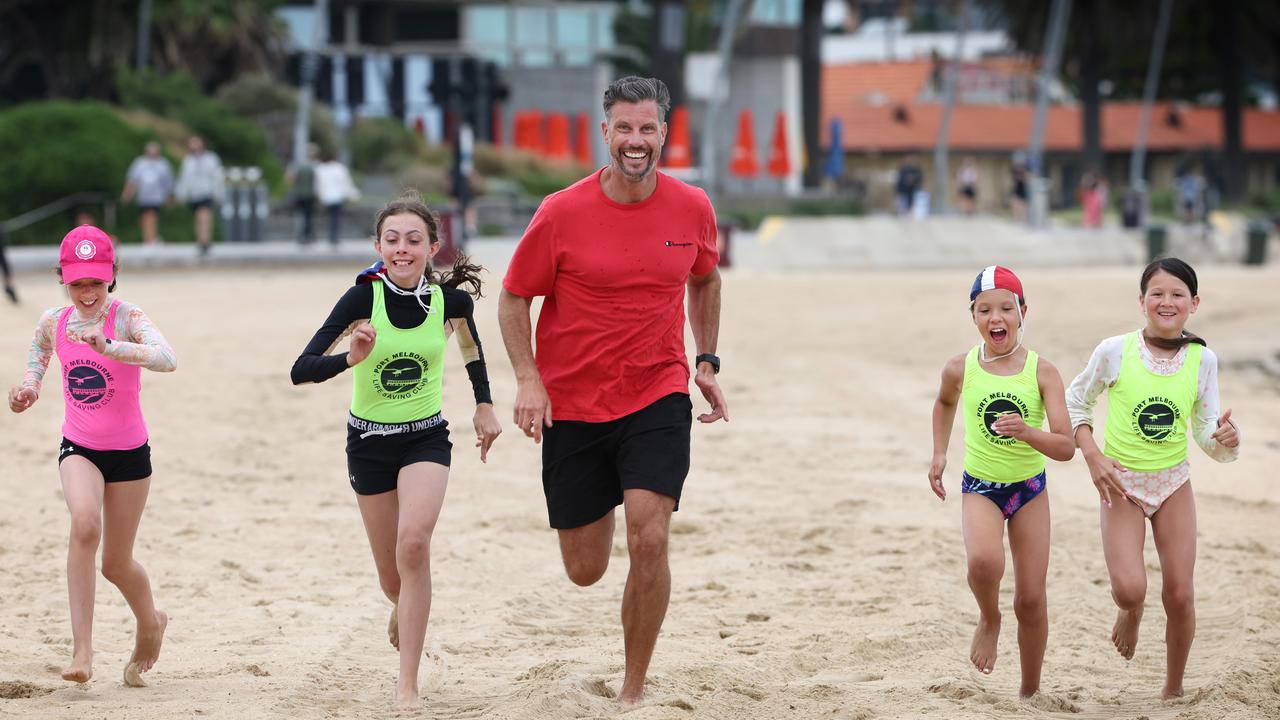
The Health of the Nation survey found only one in three kids is eating vegetables every day. Nearly half (45 per cent) are getting less than the recommended* 60 minutes of physical activity each day. Less than half (40 per cent) of children have seven or more hours of screen time a week, while only 18 per cent are taken outdoors to play by their parents for more than seven hours a week.
I’M JUST A KID – WHAT CAN I DO?
You can learn what your body need to remain fit and start eating well, moving more and avoiding things that can have a negative impact on your health.
Read all the stories in this Health of the Nation series and work through the eduction kit of activities with your teacher to discover how you and other kids can stay healthy long into your life.
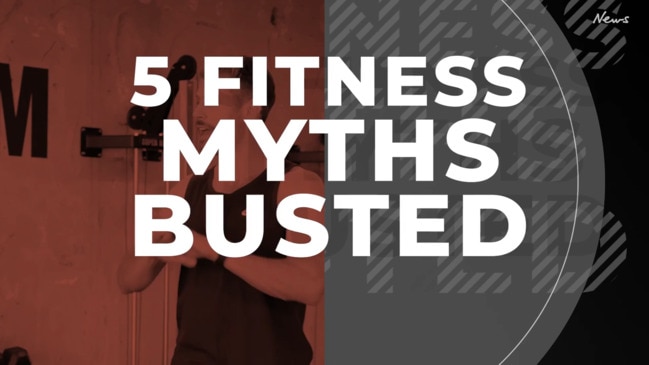
POLL
GLOSSARY
- preventable: able to be stopped from happening
- snapshot: information that gives an understanding of an issue or situation at a particular time
- obese: weighing much more than the healthy range for your age, gender, and height
- calories: a measurement of energy. It describes how much energy your body could get from eating or drinking something
- chronic: something that continues or is long-lasting
- diabetes: a serious condition where your blood glucose level is too high
- dementia: loss of ability over time to remember, think, or make decisions which affects doing everyday activities
- ambassador: a person who is chosen to represent a group or organisation
- motivators: something that encourages you
- self-esteem: feeling good about yourself
- recommended: suggested as worth doing
QUICK QUIZ
1. What proportion of Australians are overweight or obese?
2. Name 3 of the barriers Aussies blame for not being healthier.
3. What is the recommended amount of exercise kids should get each day?
4. What effect could obesity have on a child born in 2024?
5. Only 50 per cent of parents do what with their children for 1-3 hours each week?
LISTEN TO THIS STORY
CLASSROOM ACTIVITIES
Kids News has produced a free Health of the Nation education workbook full of classroom activities to support the information and expert advice in this series.
It has been crafted by one of our expert Kids News teachers and complements the information in these education kit articles.
Sign up to the free Kids News weekly newsletter HERE to access the education workbook plus more news and initiatives.
EXTRA READING
PART 2: What kids should eat to stay healthy
